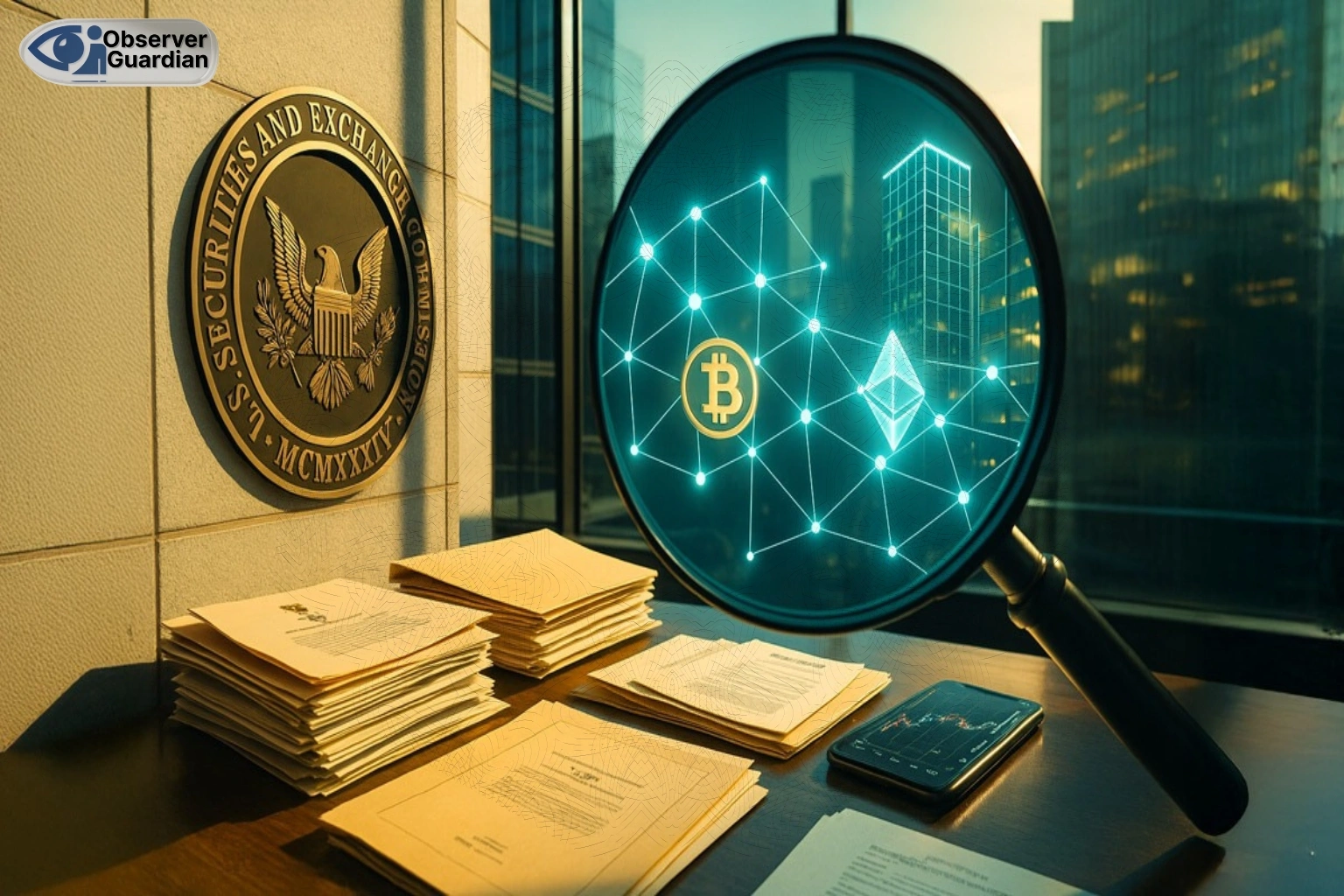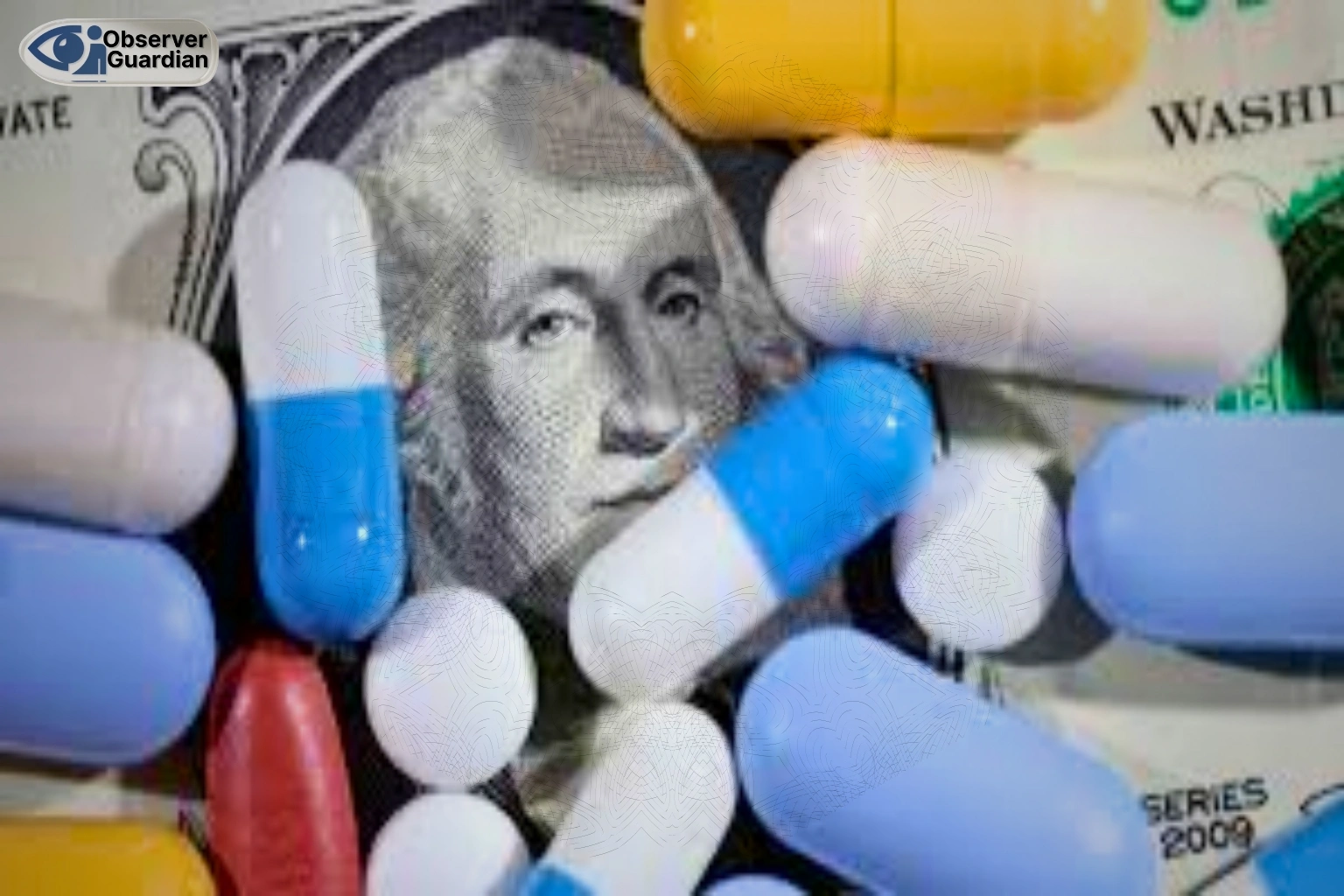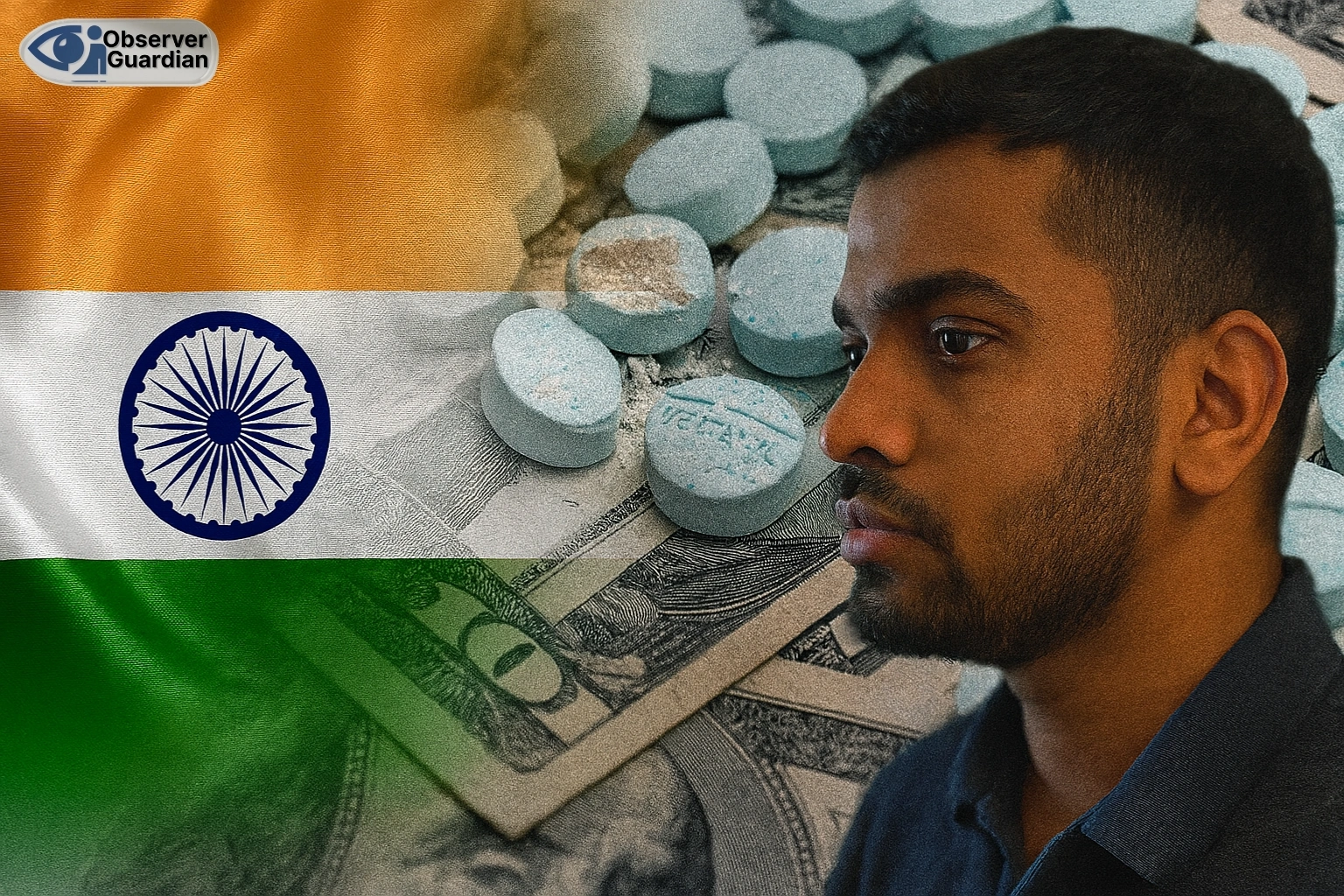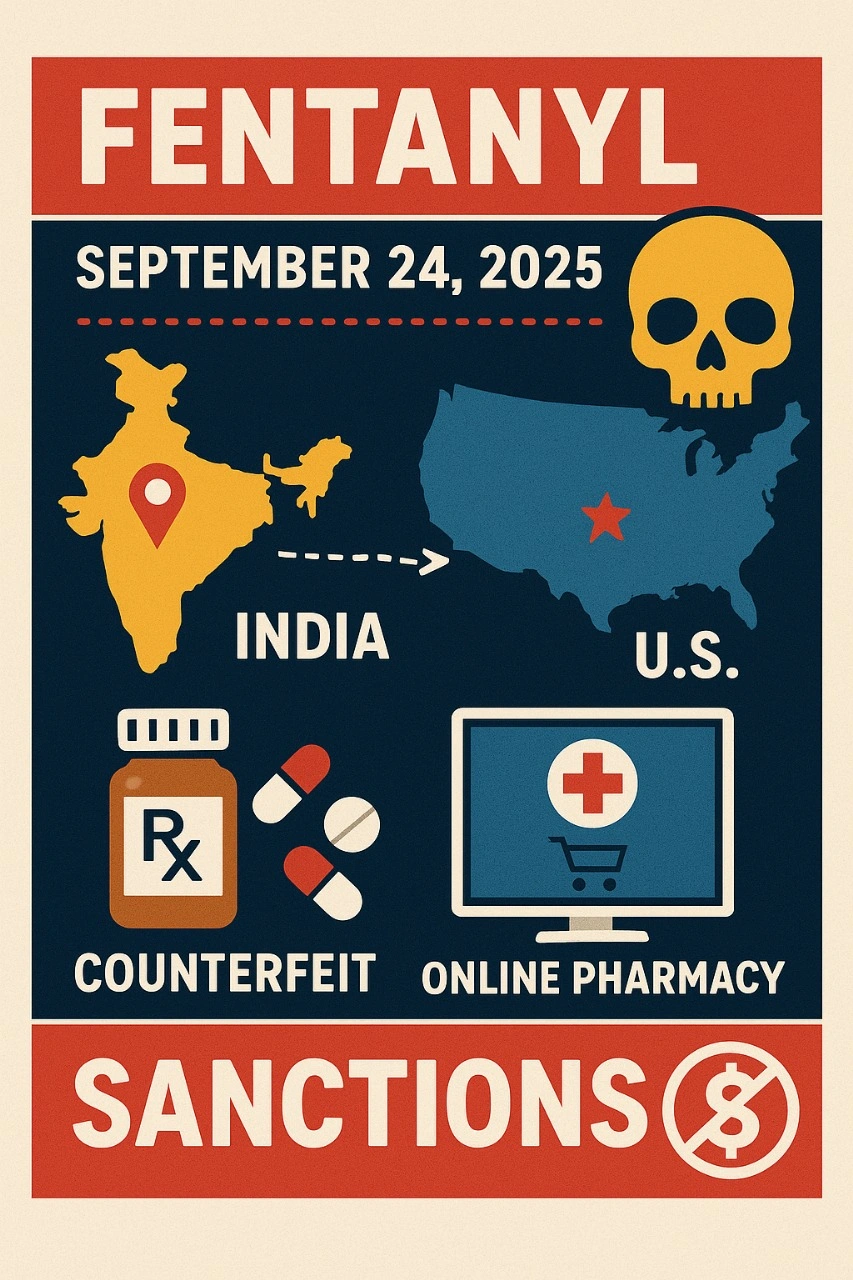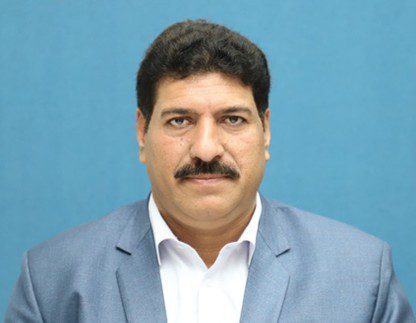On September 24, 2025, the US Treasury Department named names. Two Indian nationals, Sadiq Abbas Habib Sayyed and Khizar Mohammad Iqbal Shaikh, along with an India based online pharmacy called KS International Traders (KS Pharmacy), were sanctioned for funneling fentanyl laced counterfeit pills and meth into the United States. This was not some small time scheme, it is part of a much bigger pattern showing how India has become a key player in the global narcotics trade.
Moreover, fentanyl is not just another drug. It is at the center of the deadliest public health crisis, America has ever faced. Families are being torn apart daily, and the fact that pills stamped out in India are helping drive those numbers should raise alarms well beyond US borders.
Who Got Sanctioned and Why?
Sayyed and Shaikh were not running a dusty corner shop. Their setup was sophisticated. It includes online storefronts selling “discounted” medicines, encrypted chats to stay hidden, and a crypto wallet to move money around without leaving a trail. Besides, KS Pharmacy, owned by Shaikh, did not even slow down after he was indicted in New York last year. This boldness says a lot about how little fear there is of actual consequences back home.
Washington’s move came under Executive Order 14059, which specifically targets the international spread of illicit drugs. Alongside the Treasury, multiple agencies are involved in it including DOJ, DEA, Homeland Security, IRS-CI, and even the Postal Inspection Service. The sanctions freeze assets, block transactions, and basically try to choke off their financial lifeline.
A bigger problem than just two names
These two men might be the latest headline, but they are part of a wider supply chain that is quietly flowing from India into the Americas. Moreover, they were not just selling pills to desperate buyers online. Their network connected with cartels in the Dominican Republic and the US. This kind of partnership makes it clear that India is not just dabbling but is becoming deeply embedded in transnational drug syndicates.
Additionally, India already has the infrastructure. It is the world’s biggest exporter of generic medicines. With that manufacturing base, it does not take much for bad actors to slip into the shadows and crank out precursors and fake pills that are nearly impossible to tell apart from the real thing.
The Role of Online Pharmacies
If one looks at ads for cheap medicine online, they will probably run into the type of operation discussed here. Besides, KS Pharmacy pitched itself as a budget friendly option for folks who could not afford brand name prescriptions. Behind the curtain, it was pushing poison disguised as help.
The fact that it kept operating after a federal indictment shows how weak the enforcement environment is in India. It shows that either the state cannot or would not shut these guys down. Basically, this undermines the entire image of India as the “pharmacy of the world.” For Americans scrolling for a deal, those sites are death traps.
Crime goes digital
Old school drug trafficking relied on smugglers and secret shipments. Today, traffickers have encrypted messaging apps and cryptocurrency wallets. So, Sayyed and Shaikh leaned heavily on those tools. Moreover, Treasury even called out one of Sayyed’s crypto wallets specifically, trying to cut off his ability to launder profits.
It is an important point. This is not just about fentanyl anymore. It is about how global drug crime is evolving into cybercrime, financial crime, and even national security risks.
Fentanyl is now the leading killer of Americans aged 18-45. Let that sink in. This is more than car accidents, more than guns, and more than any single disease in that age group.
Furthermore, every counterfeit pill laced with fentanyl that slips into the US pushes that number higher.Besides, it is a fact that while China has long been blamed as a source of precursors, India’s role is now undeniable. The US President has already listed India as a country involved in illicit drug production or transit. This sanction just reinforces that reputation.
The Diplomatic Angle
Diplomatically, India likes to present itself as a responsible global power. It portrays itself as being tough on terrorism, aligned with democratic values, and a key partner for the West. But cases like this tell another story.
On one hand, it sells itself as the world’s trusted medicine cabinet. On the other hand, parts of that same pharmaceutical sector are helping to flood foreign streets with lethal narcotics.
That is not just hypocrisy, but it is a breach of international financial rules too. Groups like the FATF (Financial Action Task Force) expect countries to police money laundering and narcotics financing. Allowing online pharmacies and crypto linked drug channels to thrive is basically a failure to meet those standards.
The Bigger Picture
The US has already sanctioned Chinese companies for fentanyl precursor exports. Now it is going after Indian nationals and businesses. This shows the problem is not confined to one region, but it is global. Also, the impact is not abstract. Every sanction, every indictment, is tied to real people in America who have lost sons, daughters, parents, or friends to fentanyl overdoses.
India cannot keep hiding behind its reputation as the “pharmacy of the world.” Until it gets serious about cleaning up the black market side of its pharmaceutical industry, the state will remain what it is increasingly seen as a pharmacy of poison.
If one steps back, this story is not just about two men or one shady company. It is about whether the world’s biggest democracy is willing or able to stop parts of its own economy from fueling a drug epidemic thousands of miles away. Right now, the answer does not look positive.
⚠ Disclaimer
The views and opinions expressed in this article are exclusively those of the author and do not reflect the official stance, policies, or perspectives of the Platform.

